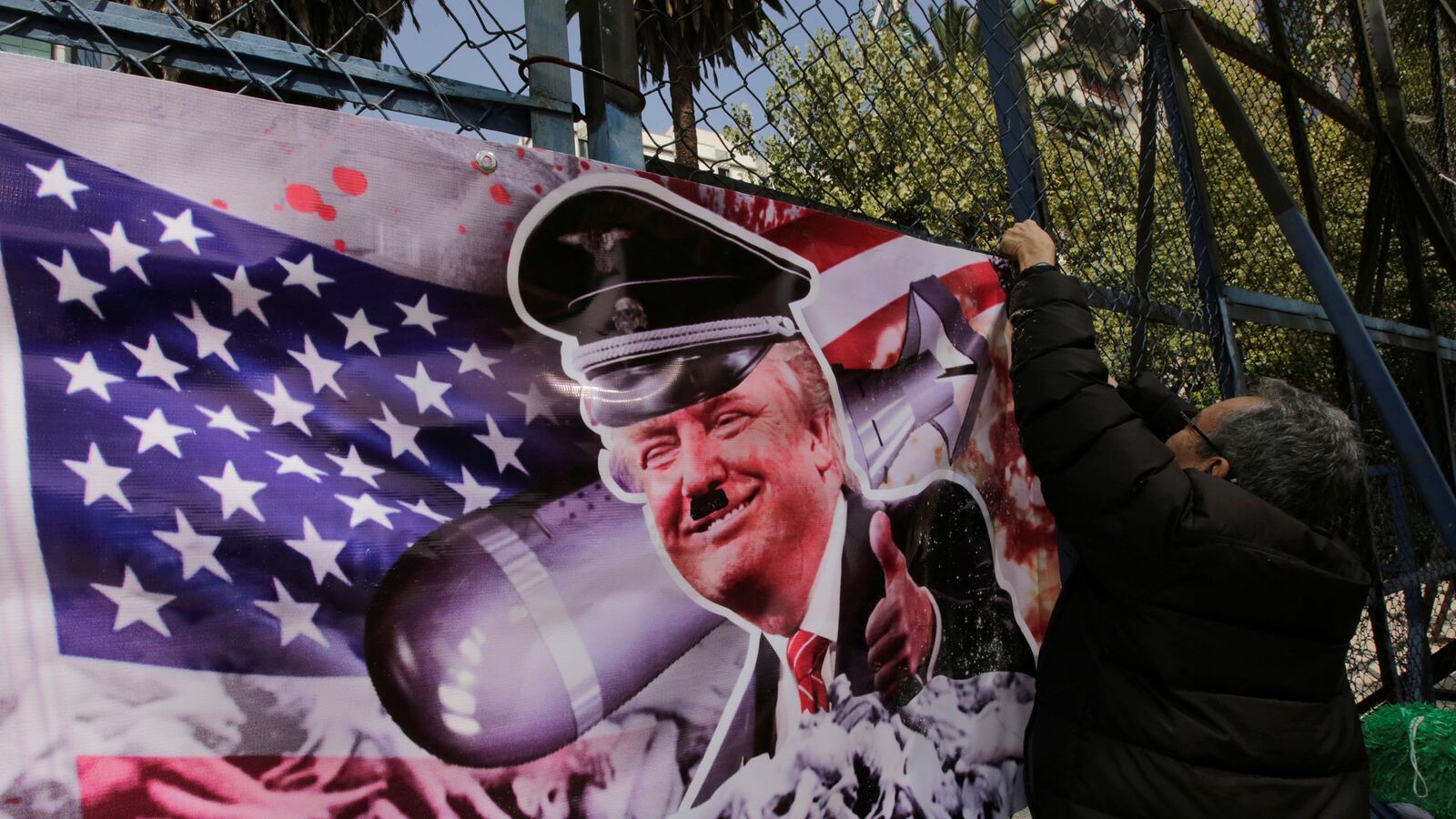It’s an election year, in a time of economic uncertainty. Running for president is a ranting populist type who has a bestselling book that is part biography, and part shameless boasting. He promises to “make America a proud, rich land again,” rails against blacks, Jews, and Mexicans, and makes it a point of criticizing the press, whose editors he accuses of “plotting how they can put over their lies, and advance their own positions.”
No, this is not a description of 2016, and the candidate is not Donald Trump—although you can be excused for thinking so. This is, instead, a character named Berzelius Windrip in Nobel Prize-winning author Sinclair Lewis’s 1935 novel, It Can’t Happen Here, a cautionary tale about how fascism comes to America. Although published over 80 years ago, Lewis’s novel seems especially relevant in the age of Trump. So relevant, in fact, that it recently became Amazon’s number one bestseller in the Classic American Literature category.
“The thing most resonant about the novel is it identified the conditions that were operative in 1935, and operative in the summer of 2016,” says Susan Medak, managing director of the Berkeley Repertory Theater, which staged a theatrical version of Lewis’s book in September. “What we wanted to share with the audience was there were high stakes in the election,” she adds. “[Trump’s] message of real hatred and bigotry spoke to this particular time again. The issue of gender is even in the original novel. The issues of freedom of the press were powerful. It took little effort to draw those parallels.”
The current interest in the novel “has to do with Buzz Windrip and the comparison to Trump,” says Michael Meyer, an emeritus professor of English at the University of Connecticut, who wrote the forward to the paperback edition of Lewis’s work. “Windrip is the kind of chameleon that Trump is, he takes positions that are contradictory,” says Meyer. “You can put quotes from Windrip’s book Zero Hour next to The Art of the Deal, or to Trump’s Twitter feed. He can be all things to all people, because he stands for nothing.”
Lewis wrote It Can’t Happen Here during a bleak period in American and world history. In Europe, the rise of Hitler and the Nazi Party, with its overt anti-Semitism, hostility to a free press, and violent tendencies, was a major cause for alarm. In the U.S., populist demagogues from both the left and right, like Louisiana Senator Huey Long and radio priest Father Charles Coughlin, were stirring up a populace still in the throes of the Depression, while FDR’s New Deal programs of economic recovery seemed bogged down and stalled. Organizations sympathetic to the Nazis began to pop up in cities like New York and Chicago. And a major figure like press lord William Randolph Hearst could declare—in the same month Lewis’s novel was released—“Whenever you hear a prominent American called a fascist, you can usually make up your mind that the man is simply a loyal citizen who stands for Americanism.”
Inspired by all this, Lewis rushed his book into publication, where it became an instant bestseller. But its flaws are all too obvious. It Can’t Happen Here is a slapdash novel, over-written and over-wrought, stuffed with too much plot. “Almost all the reviewers complained about it, but regarded it as a must read,” says Meyer. Or, as the review in The New York Times put it, “the book is exciting reading, even if it does nothing to advance Mr. Lewis’s art as a novelist.”
And it’s not as if It Can’t Happen Here was totally prescient about the future. It’s extremely doubtful that Trump will invade Mexico, bar blacks from voting or holding public office, jail journalists who criticize him, shove his political opponents into concentration camps, and demand Jews support “our ideals,” all of which Windrip does (although if you substitute Muslims for Jews, this aspect of Trumpism is eerily similar to Windrip’s form of bigotry). In this sense, says Meyer, Lewis was right, “not about America, but what was going on in Europe. He was wrong about the fragility of American democracy.”
Yet there are still plenty of chilling comparisons. In the novel, there is “a portion of the public feeling totally abandoned by the government,” says Medak. “When he references [an organization called] the League of Forgotten Men, how could anything speak better; he could have been speaking of 2016. There’s also a reference in the novel to 1 percent of the public controlling 47 percent of the wealth of the country—it’s worse now, but the parallels are clear.”
And there’s this: Trump is not Windrip, because Windrip is basically an ideologue, while the president-elect is more of a deal maker, and not a policy person. What Trump does have, says Meyer, is “his finger on the pulse of American sensibilities formed by mass media, nationalism, ethnicity, xenophobia, unemployment, fears about immigration, a concern about welfare, the concern about crime, and his love of the poorly educated. All of this is echoed by Windrip in the novel.”
Yet, adds Medak, “The issue is not whether Trump is the guy in the book, but whether we the American people are the people Lewis is writing about. Are we the Americans he was warning us about? I do think we are. There is a fascination with demagoguery, someone who offers simple answers to complex problems. I think we are the people he was talking about 80 years ago.”





